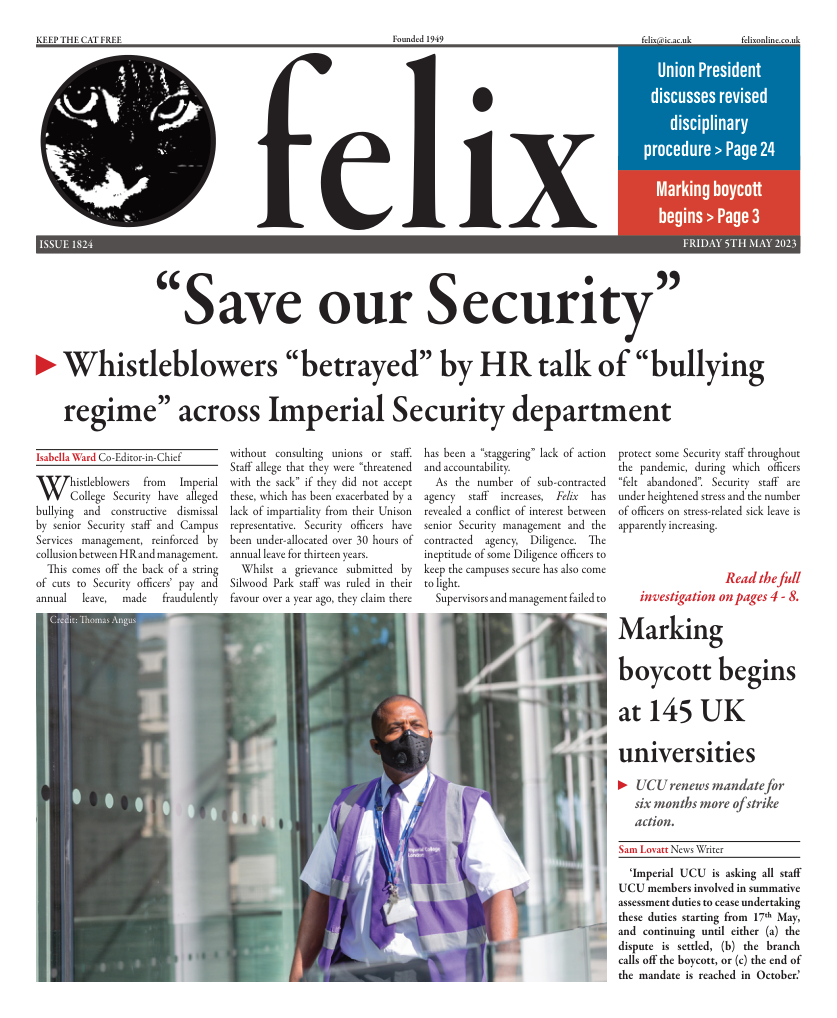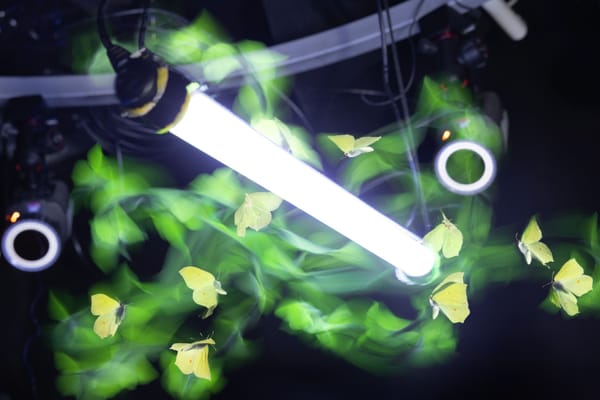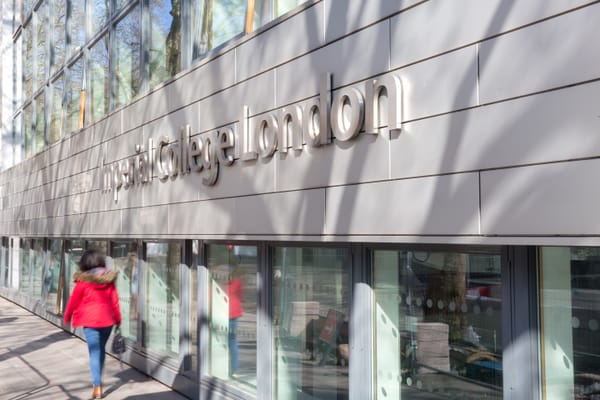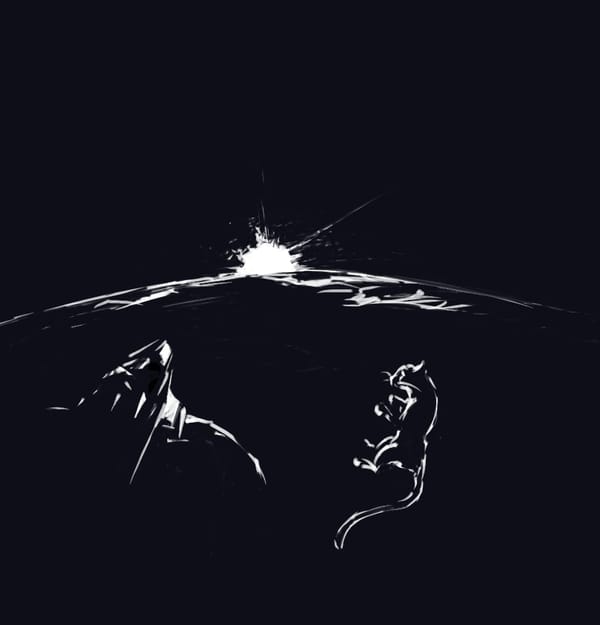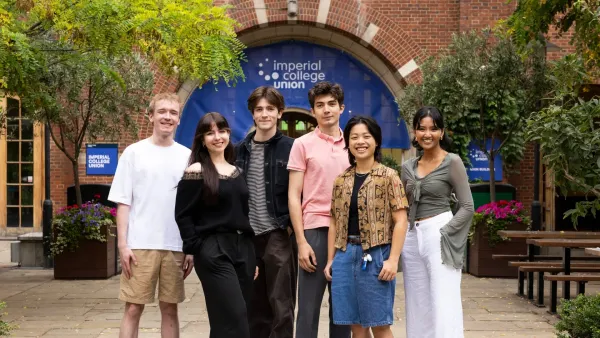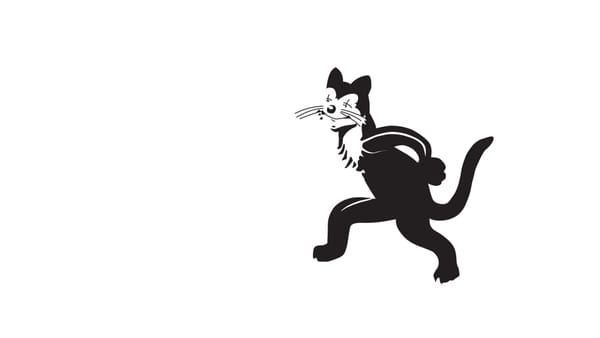Marking boycott begins at 145 UK universities
UCU renews mandate for six months more of strike action.
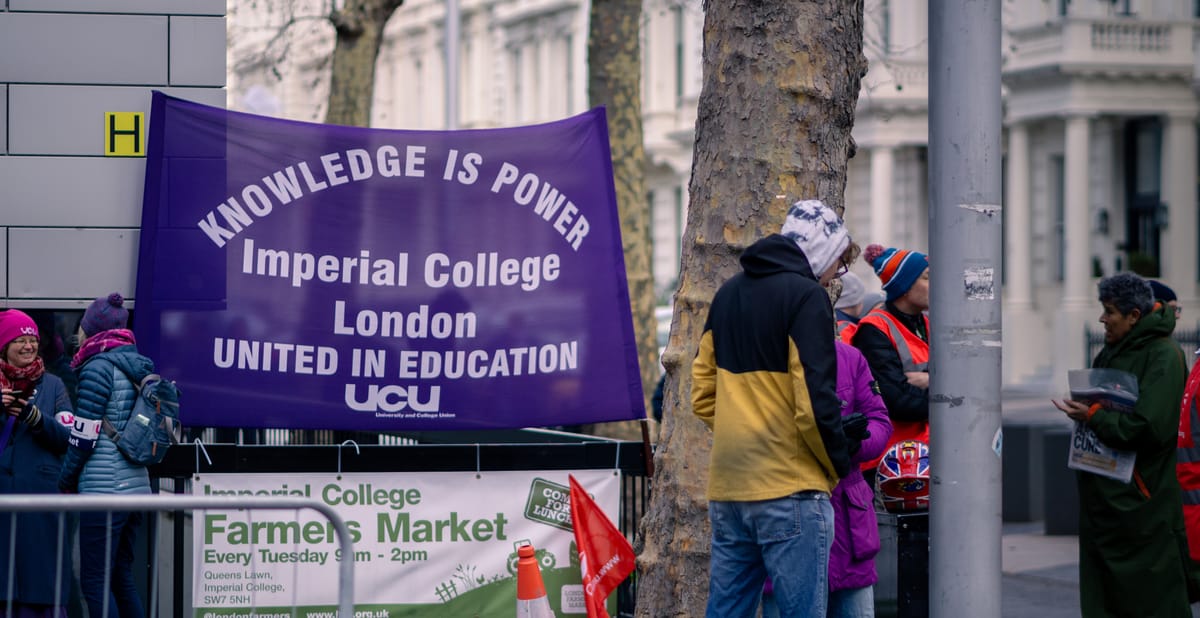
A marking and assessment boycott began at 145 UK universities, including Imperial College London, on 20 April, the University and College Union (UCU) confirmed last week. UCU members – including lecturers, teaching staff, and technicians – voted by a margin of 56% to reject an offer made by Universities UK (UUK), which represents university employers in the dispute, on 17 April. The offer pertained to the ongoing dispute regarding the pay & working conditions of UCU members.
Regarding the dispute over changes to the USS pension scheme, which has been going in parallel with the pay dispute, UCU members voted by a margin of 85% to accept proposals agreed on by UUK, calling off strike action related to the pensions dispute. However, as action in both disputes included a marking and assessment boycott, and concerns around pay & working conditions remain unresolved, this will make no difference to the action taken.
The boycott commences just over two weeks after the UCU renewed its mandate for strike action for another six months, when a reballot of UCU members found 85.65% in favour of strike action and 89.92% in favour of action short of strike action, with a turnout of 56.41%.
The reballot gives the UCU a six month mandate for strike action and action short of striking, and the union has said that such action will continue until an agreement is reached with the university employers, or until the mandate runs out.
Strike action has been taking place at some UK universities since 2021.
The dispute over pensions began when a revaluation of the USS pension scheme found that it was set to be in a deficit of £14.1bn. This led fund managers to levy increased contributions onto workers in return for a 35% reduction in guaranteed retirement income for its average member, stating that the fund was unsustainable if such action was not taken.
The revaluation was conducted near the beginning of the COVID-19 pandemic. The UCU has said that the revaluation was “flawed” because “global markets were crashing” at the time, leading to an erroneous final assessment.
The total impact of the strike action is currently unclear, though renewed action may lead to problems with graduation for final year students whose work may not be marked in time. An email sent to undergraduates in the Department of Life Sciences by the Director of Undergraduate Studies at the end of January stated that the Department “will carefully review [the strikes’] impact on you and take account of any adverse effects and put in place appropriate mitigation”.

